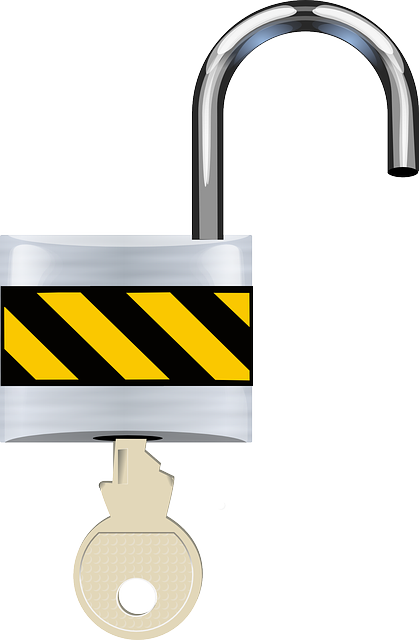Unlocking the Secrets: The Best Crypto Wallets You Need in 2023
Author: Jameson Richman Expert
Published On: 2025-03-13
Prepared by Jameson Richman and our team of experts with over a decade of experience in cryptocurrency and digital asset analysis. Learn more about us.
If you're venturing into the world of cryptocurrency, knowing the best crypto wallets available is essential. With the rise of digital currencies, the demand for secure and efficient crypto wallets has grown exponentially. This comprehensive guide will delve into the different types of crypto wallets, their features, and which ones you should consider for your investments. Whether you're a novice or a seasoned trader, understanding these wallets can significantly impact your crypto journey.

What is a Crypto Wallet?
A crypto wallet is a digital tool that allows you to store, send, and receive cryptocurrencies. Unlike traditional wallets that hold physical cash, crypto wallets store your digital assets using private and public keys. The private key is your password, while the public key is your address on the blockchain. Understanding how these keys work is crucial for maintaining your crypto's security.
Types of Crypto Wallets
There are several types of crypto wallets, each offering unique features and security levels. Here’s a breakdown of the most common types:
1. Hardware Wallets
Hardware wallets are physical devices that securely store your private keys offline. They are considered one of the safest options for storing cryptocurrencies as they are immune to online hacking attempts. Popular hardware wallets include:
- Ledger Nano S
- Trezor Model T
2. Software Wallets
Software wallets are applications that can be installed on your computer or mobile device. They offer a balance between convenience and security. Software wallets can be further divided into:
- Desktop Wallets: Installed on a PC or laptop, such as Exodus and Electrum.
- Mobile Wallets: Apps that allow you to manage your crypto on the go, like Trust Wallet and Mycelium.
3. Web Wallets
Web wallets are online services that store your crypto. They are the most convenient but also the least secure, as they are vulnerable to phishing attacks. Examples include Coinbase and Binance.
4. Paper Wallets
Paper wallets are physical printouts of your public and private keys. While they offer offline storage, they can be easily lost or damaged, making them less practical for everyday use.
Why You Need a Crypto Wallet
Having a reliable crypto wallet is crucial for several reasons:
- Security: Protect your investments from theft and hacking.
- Control: Maintain control over your private keys and assets.
- Convenience: Easily send and receive cryptocurrencies.

Factors to Consider When Choosing a Crypto Wallet
Not all wallets are created equal. When selecting a crypto wallet, consider the following factors:
- Security Features: Look for wallets with two-factor authentication, multi-signature support, and encryption.
- User Experience: The wallet should have an intuitive interface, making it easy for you to navigate.
- Supported Coins: Ensure the wallet supports the cryptocurrencies you intend to store.
- Backup and Recovery Options: Choose a wallet with robust backup and recovery options to prevent loss of funds.
Popular Crypto Wallets in 2023
Here’s a look at some of the top crypto wallets available this year:
1. Binance Wallet
The Binance Wallet is integrated with one of the largest cryptocurrency exchanges. It provides a seamless experience for trading and storing your assets. You can register for a Binance account here.
2. MEXC Wallet
MEXC offers a user-friendly wallet that supports various cryptocurrencies and trading pairs. You can sign up for MEXC here.
3. Bitget Wallet
Bitget is known for its security and user-friendly interface. It’s a great choice for both beginners and experienced traders. Register for Bitget here.
4. Bybit Wallet
Bybit provides a robust wallet solution with advanced trading features. You can create an account on Bybit here.
How to Safely Store Your Cryptocurrencies
Once you have chosen a wallet, it’s essential to implement best practices for safely storing your cryptocurrencies:
- Enable Two-Factor Authentication: This adds an extra layer of security to your account.
- Use Strong Passwords: Create complex passwords that are difficult to guess.
- Keep Software Updated: Ensure your wallet software is always updated to protect against vulnerabilities.
- Backup Your Wallet: Regularly back up your wallet data to prevent loss.

Emerging Trends in Crypto Wallets
The crypto landscape is constantly evolving. Here are some trends to watch in 2023:
- Integration with DeFi: Wallets are increasingly integrating with decentralized finance platforms.
- NFT Support: Many wallets are now supporting the storage of non-fungible tokens.
- Enhanced Security Features: Innovations in biometric security are being introduced to wallets.
Conclusion
Choosing the right crypto wallet is a pivotal step in your cryptocurrency journey. With numerous options available, understanding the features, benefits, and security measures of each wallet is crucial. Whether you choose a hardware wallet for its security or a web wallet for convenience, ensure that it aligns with your investment goals. For those looking to enhance their trading strategies, consider exploring crypto trading signals and the future of crypto bots for further insights.